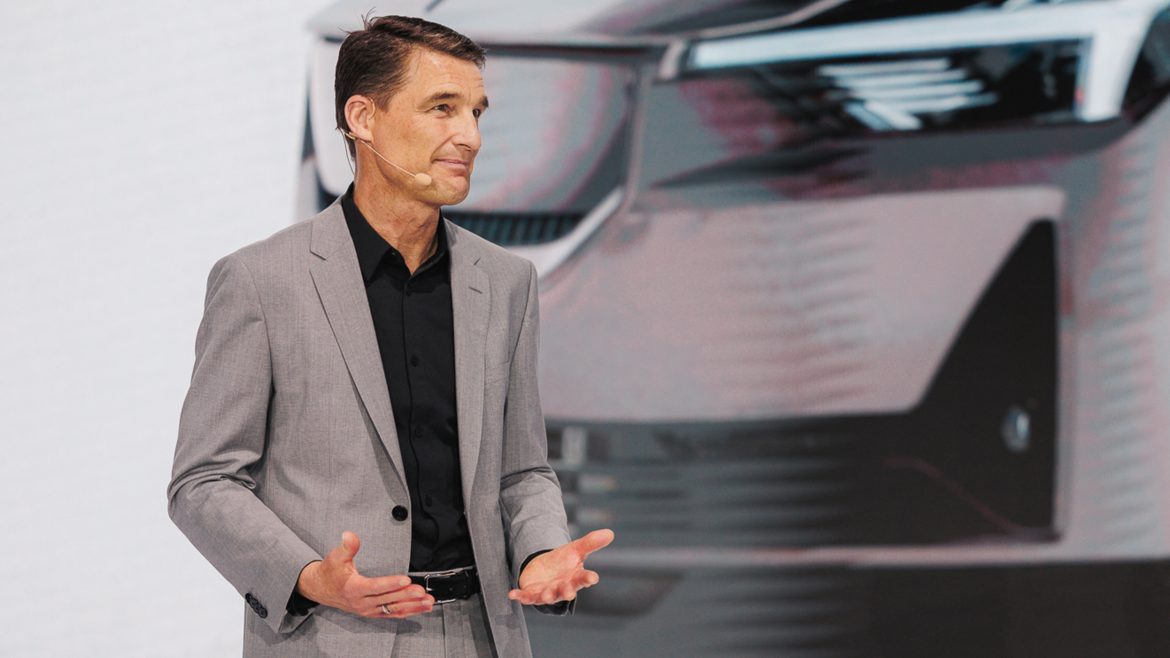As the United States ratchets up trade tensions with China, imposing steep tariffs on a range of Chinese imports, the electric vehicle industry finds itself caught in the crosshairs. Thomas Ingenlath, the CEO of Polestar, a Swedish EV manufacturer controlled by China’s Geely, has voiced his perplexity over the Biden administration’s decision to sharply increase tariffs on Chinese-made electric vehicles and related components.
The new tariff rate on EVs produced in China and shipped to the U.S. is poised to surge from 27.5 per cent to a staggering 102.5 per cent this year. Additionally, tariffs will also increase on raw materials such as steel, aluminium, and microchips imported from China, further compounding the challenges faced by EV manufacturers reliant on Chinese production facilities.
“There is a certain erraticness that comes with going from one day to the next to 100 per cent tariffs,” Ingenlath expressed to Automotive News Europe, highlighting the abruptness and unpredictability of the tariff hikes.
While acknowledging that Polestar’s production initially had a “very Chinese orientation,” Ingenlath emphasised the company’s proactive efforts to diversify its manufacturing footprint over the past three years. This strategic move aims to mitigate the impact of tariffs and potential retaliatory measures, creating a natural hedge against trade tensions.
Starting this summer, the Polestar 3 large SUV will be produced at Volvo’s U.S. factory near Charleston, South Carolina. Furthermore, in mid-2025, the Polestar 4 midsize SUV will be manufactured by Renault Korea Motors in Busan, South Korea, initially catering to the North American market. This diversification strategy is expected to shield Polestar from the potential tariff crossfire between the U.S. and China, as well as potential tariff-rate increases by the European Union on Chinese-made EVs imported into the EU.
“Free trade is not easy anymore,” Ingenlath said during the press launches for the Polestar 3 and 4 in Spain. “This is not a problem unique to Polestar or this industry. I just hope that if no rationale exists for free trade, we can at least have fair trade.”
Ingenlath cited the example of the Polestar 3, where nearly half of the vehicles produced in the U.S. will be exported, highlighting the value creation and employment opportunities generated by the company’s diversified production strategy.
While Polestar is actively exploring the possibility of adding production facilities in Europe, with the earliest potential being the arrival of the Polestar 7 around 2027, Ingenlath acknowledged the time-consuming nature of establishing new production lines, emphasising the need for months, if not years, of preparation.
In addition to navigating the tariff turbulence, Ingenlath also addressed Polestar’s recent deficiency notice from the Nasdaq stock exchange, which stemmed from the company’s failure to file its first-quarter earnings and 2023 annual report on time. Ingenlath assured stakeholders that the company is working to correct the accounting errors, predominantly predating its Nasdaq listing in June 2022, and aims to publish both reports by the end of June.



